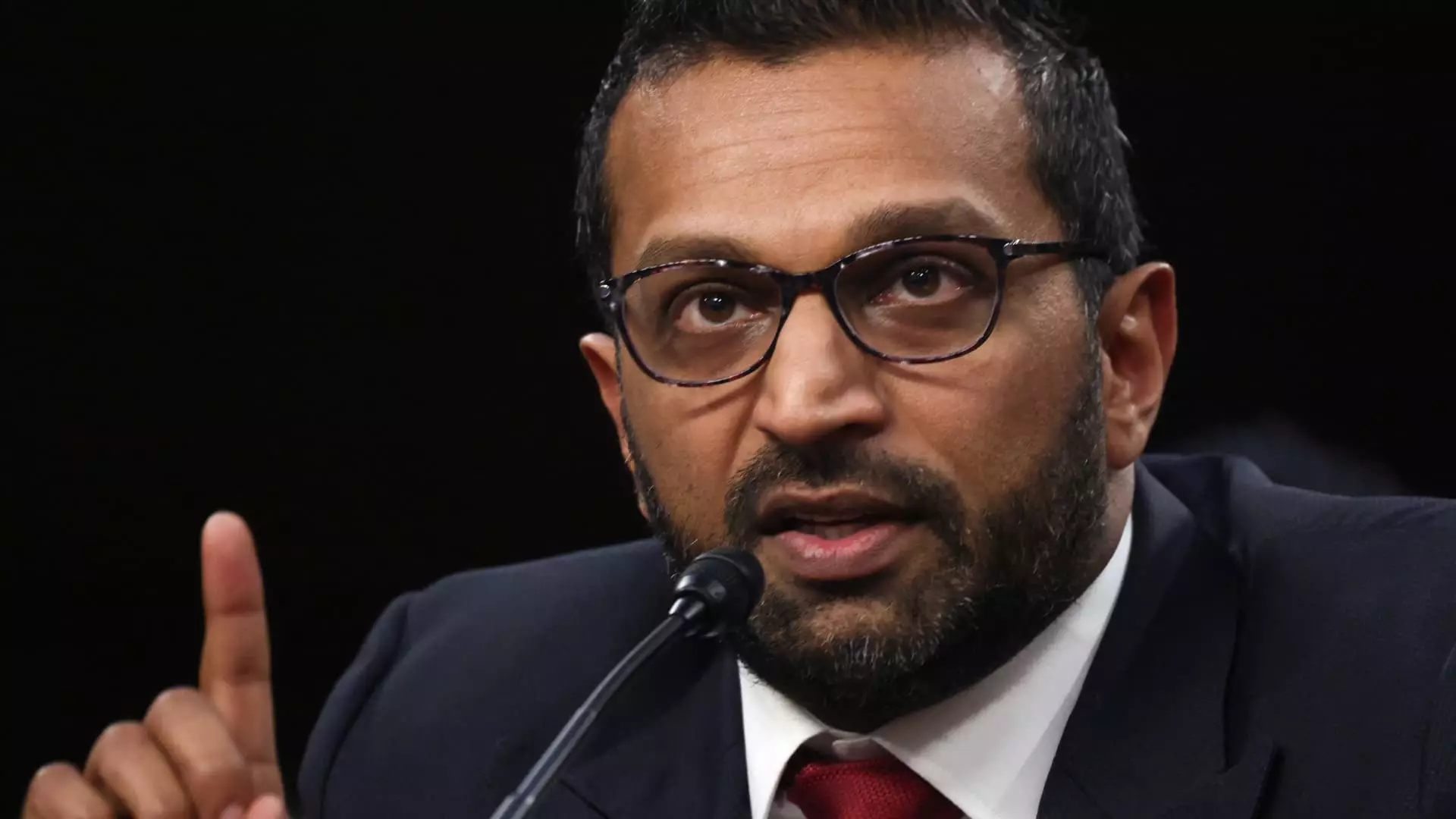The appointment of Kash Patel as the new Director of the FBI is stirring significant discussion across political landscapes. As he prepares to assume an additional and unprecedented role as the acting head of the Bureau of Alcohol, Tobacco, Firearms and Explosives (ATF), various implications arise not only for the bureau itself but also for the enforcement of firearms regulation within the United States. This dual leadership position comes on the heels of a recent reshuffling at the Justice Department, indicating a potential pivot in its operational and strategic approach.
Historically, the ATF has often been at the center of gun rights controversies, especially under conservative administrations. The situation becomes even more intriguing given Patel’s known allegiance to former President Donald Trump, particularly regarding a transformative agenda for the FBI. His dual leadership role across two significant agencies may lead to questions of accountability and effectiveness, particularly concerning firearms regulation and enforcement laws—a point that critics are likely to highlight.
The unusual arrangement could complicate the delicate balancing act required in addressing the complex issues surrounding gun control in America. By combining leadership roles, Patel may face unique challenges in managing the priorities of the FBI, which primarily deals with federal law enforcement and national security, while also juggling the ATF’s mandates dealing with substances that have long polarized public opinion.
As Patel prepares to step into these prominent roles, the political atmosphere surrounding him is charged. The announcement follows Attorney General Pam Bondi’s recent decision to dismiss the ATF’s chief counsel, Pamela Hicks, sparking controversy and concern over the agency’s direction. Such a move raises eyebrows about transparency and the future operational ethos of the ATF under Patel’s leadership, especially considering Hicks’s twenty-year tenure at the Justice Department, which many viewed as a commitment to professional stability.
Critics, especially from gun control advocacy groups, view Patel’s appointment as a perilous turn of events, arguing that he embodies a “gun rights extremist” viewpoint. This sentiment is echoed in the robust alarm raised by reputable organizations such as Brady, underscoring fears that Patel may instigate changes that prioritize gun owner rights over public safety. Conversely, groups representing gun rights celebrate his ascent as a significant achievement for their cause, indicating a marked shift in the Bureau’s tenor.
This new arrangement underlines a recurring theme in American politics: the push and pull between protecting Second Amendment rights and safeguarding public safety in the face of gun violence. Under the Biden administration, the ATF has made strides to reinforce regulations concerning “ghost guns”—firearms that can be assembled at home—and expanded requirements for background checks across various sales platforms.
The appointment of Patel as acting head of the ATF comes at a crucial time, where he is likely to be nested amid strategies that could oscillate between enforcement and deregulation. Conservative dissatisfaction with the ATF’s approach to firearms regulation could lead to increased scrutiny of Patel’s leadership, particularly if decisive action is perceived as overly lenient or excessively punitive.
It is crucial to acknowledge the backdrop of this leadership shift, marked by years of political tussles that have hindered the ATF’s ability to maintain a confirmed director. Prior to Patel’s expected command, Steve Dettelbach had occupied the director role but was only confirmed in July 2022 after a lengthy hiatus without a Senate-processed nominee. This history of intermittent leadership reflects broader political dysfunction and highlights the importance of stable oversight in law enforcement agencies.
As Patel prepares to take on these pivotal responsibilities, the coming weeks are crucial for both the Justice Department and its various units. Stakeholders across the political spectrum will be watching closely as events unfold, anticipating potential shifts in policy that could reshape America’s approach to gun ownership, enforcement, and safety. The operational success and effectiveness of Kash Patel in these dual roles will ultimately depend not only on his leadership abilities but also on how he navigates the intricate political and social landscapes that define these contentious issues.

Leave a Reply